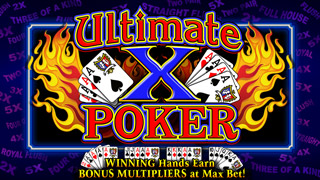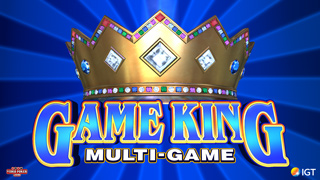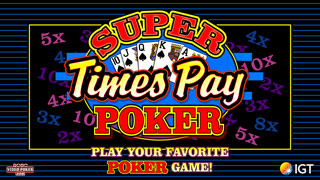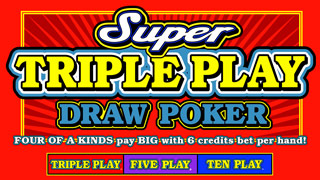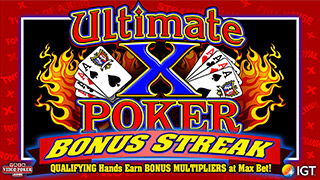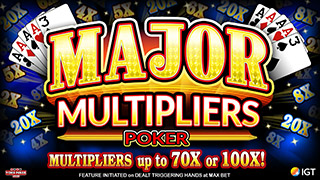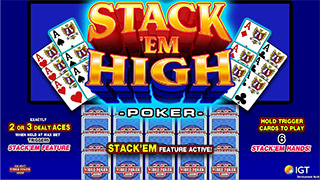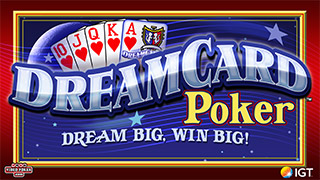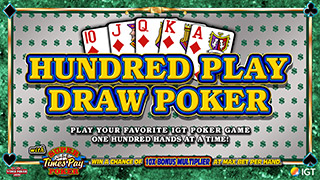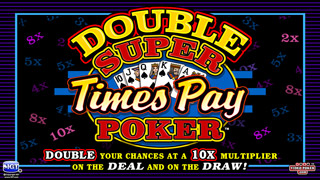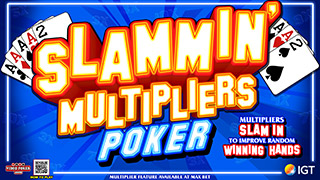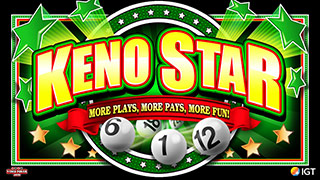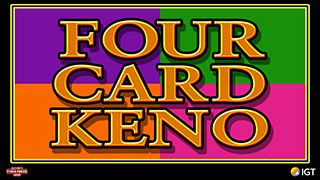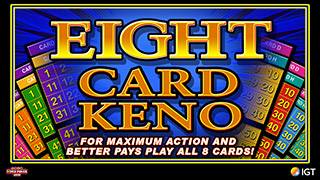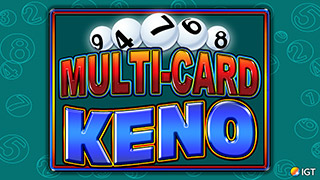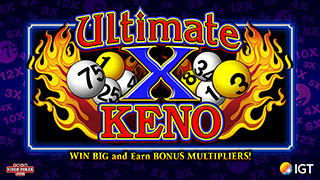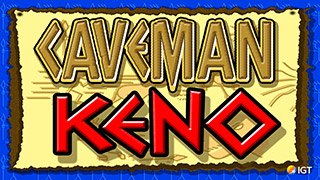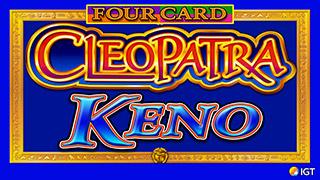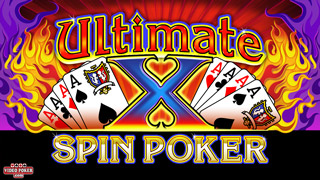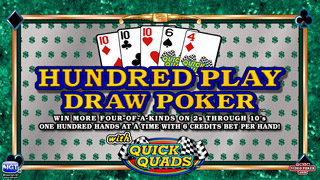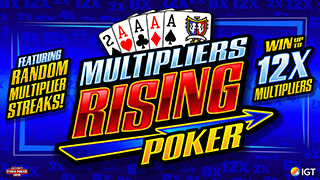The myth of playing 5 coins in video poker.
-
billryan
- Video Poker Master
- Posts: 4422
- Joined Forum: January 15, 2009
- View Player Page
Re: The myth of playing 5 coins in video poker.
I was only trying to look at regular Jacks or Better video poker, from a purely mathematical standpoint. Casino promotions are another matter I know very little about. I only know optimum strategy for this game. I suspect that the expected value for any 5 coin game is less than for 1 coin.
And yet you aren't looking at it from the mathematical standpoint. Video poker is about payout, not odds. A machine that pays back 99.6% has the same odds as one that pays 95%. Its how much you get paid per winning hand that counts, not that one machine will win more often.
A machine that pays out 99% at max coin will pay about 97% at anything less than max. What that means is the first returns 99 cents for every dollar you run through it, while the second pays 97 cents. Please notice that the machines payout is per dollar, not per hand, nor per hour, nor per session.
An educated player knows that life is one long session.
Breaking it up into hour segments changes nothing, nor does breaking it into hands per session.
You are on the right track thinking that number of hands played doesn't matter, but you are off when you say the more you play, the more you will lose playing max coins. It's actually the complete opposite.
If every dollar played at max coins returns 99%, and every dollar played at single coin returns 97%, which is better?
And yet you aren't looking at it from the mathematical standpoint. Video poker is about payout, not odds. A machine that pays back 99.6% has the same odds as one that pays 95%. Its how much you get paid per winning hand that counts, not that one machine will win more often.
A machine that pays out 99% at max coin will pay about 97% at anything less than max. What that means is the first returns 99 cents for every dollar you run through it, while the second pays 97 cents. Please notice that the machines payout is per dollar, not per hand, nor per hour, nor per session.
An educated player knows that life is one long session.
Breaking it up into hour segments changes nothing, nor does breaking it into hands per session.
You are on the right track thinking that number of hands played doesn't matter, but you are off when you say the more you play, the more you will lose playing max coins. It's actually the complete opposite.
If every dollar played at max coins returns 99%, and every dollar played at single coin returns 97%, which is better?
-
markinca
- Senior Member
- Posts: 260
- Joined Forum: June 5, 2015
- View Player Page
You are on the right track thinking that number of hands played doesn't matter, but you are off when you say the more you play, the more you will lose playing max coins. It's actually the complete opposite.
If every dollar played at max coins returns 99%, and every dollar played at single coin returns 97%, which is better?
Well, in an absolute sense he's correct. In his original post, he says,
Betting one quarter your expected loss would be $0.73. Betting 5 quarters your expected loss would be $1.95. So even though the odds are better betting 5 coins, your losses are less betting only 1 coin.
This is a clearly true statement (assuming his numbers are correct). It's true, but it's meaningless - of course it's reasonable you would lose more absolute money when you're putting more money through a machine in a given time period. You're comparing apples to oranges.
The goal is not to lose the least money per unit time - it is to lose the least money per dollar wagered.
BillWFord, if I play $1000/hand blackjack, even if I play perfect strategy I'll lose much more per hour than if I play $1 roulette. Does this mean that roulette is a better game than blackjack? Obviously not. Why? Because the total amount I've wagered per hour is vastly different for those two games.
Likewise, you can't compare 1 hour of playing single-coin quarters to 1 hour of playing max-coin quarters. You have to compare _5_ hours of playing single-coin quarters to 1 hour of max-coin quarters. You must do this because you have to compare equal coin-ins.
If you did this, you would see (using your figures) that the expected loss at single-coin is $3.65, while the expected loss at max-coin is $1.95.
-
alpax
- Video Poker Master
- Posts: 1942
- Joined Forum: June 14, 2014
- View Player Page
Perfect response Mark!
-
paco13
- VP Veteran
- Posts: 591
- Joined Forum: September 5, 2008
- View Player Page
-
WVRadar
- Senior Member
- Posts: 176
- Joined Forum: September 21, 2011
- View Player Page
Closely examine the payout table on the machine you are playing. For example my favorite machine at the local casino pays out the same whether you are playing 1 coin or 5. One coin on a Royal Flush pays 500 while 5 coins pays 2500 instead of the usual 4000.
-
billryan
- Video Poker Master
- Posts: 4422
- Joined Forum: January 15, 2009
- View Player Page
Closely examine the payout table on the machine you are playing. For example my favorite machine at the local casino pays out the same whether you are playing 1 coin or 5. One coin on a Royal Flush pays 500 while 5 coins pays 2500 instead of the usual 4000.
Other then short paying the Royal, what makes it your favorite?
Other then short paying the Royal, what makes it your favorite?
-
pokerpokerpoker
- VP Veteran
- Posts: 563
- Joined Forum: November 3, 2008
- View Player Page
[QUOTE=billryan]
You are on the right track thinking that number of hands played doesn't matter, but you are off when you say the more you play, the more you will lose playing max coins. It's actually the complete opposite.
If every dollar played at max coins returns 99%, and every dollar played at single coin returns 97%, which is better?
Well, in an absolute sense he's correct. In his original post, he says,
Betting one quarter your expected loss would be $0.73. Betting 5 quarters your expected loss would be $1.95. So even though the odds are better betting 5 coins, your losses are less betting only 1 coin.
This is a clearly true statement (assuming his numbers are correct). It's true, but it's meaningless - of course it's reasonable you would lose more absolute money when you're putting more money through a machine in a given time period. You're comparing apples to oranges.
The goal is not to lose the least money per unit time - it is to lose the least money per dollar wagered.
BillWFord, if I play $1000/hand blackjack, even if I play perfect strategy I'll lose much more per hour than if I play $1 roulette. Does this mean that roulette is a better game than blackjack? Obviously not. Why? Because the total amount I've wagered per hour is vastly different for those two games.
Likewise, you can't compare 1 hour of playing single-coin quarters to 1 hour of playing max-coin quarters. You have to compare _5_ hours of playing single-coin quarters to 1 hour of max-coin quarters. You must do this because you have to compare equal coin-ins.
If you did this, you would see (using your figures) that the expected loss at single-coin is $3.65, while the expected loss at max-coin is $1.95. [/QUOTE]
I nomimate this as post of the year.
You are on the right track thinking that number of hands played doesn't matter, but you are off when you say the more you play, the more you will lose playing max coins. It's actually the complete opposite.
If every dollar played at max coins returns 99%, and every dollar played at single coin returns 97%, which is better?
Well, in an absolute sense he's correct. In his original post, he says,
Betting one quarter your expected loss would be $0.73. Betting 5 quarters your expected loss would be $1.95. So even though the odds are better betting 5 coins, your losses are less betting only 1 coin.
This is a clearly true statement (assuming his numbers are correct). It's true, but it's meaningless - of course it's reasonable you would lose more absolute money when you're putting more money through a machine in a given time period. You're comparing apples to oranges.
The goal is not to lose the least money per unit time - it is to lose the least money per dollar wagered.
BillWFord, if I play $1000/hand blackjack, even if I play perfect strategy I'll lose much more per hour than if I play $1 roulette. Does this mean that roulette is a better game than blackjack? Obviously not. Why? Because the total amount I've wagered per hour is vastly different for those two games.
Likewise, you can't compare 1 hour of playing single-coin quarters to 1 hour of playing max-coin quarters. You have to compare _5_ hours of playing single-coin quarters to 1 hour of max-coin quarters. You must do this because you have to compare equal coin-ins.
If you did this, you would see (using your figures) that the expected loss at single-coin is $3.65, while the expected loss at max-coin is $1.95. [/QUOTE]
I nomimate this as post of the year.
-
onemoretry
- Video Poker Master
- Posts: 3135
- Joined Forum: March 3, 2009
- View Player Page
I nomimate this as post of the year. I second the nomination.
-
BillWFord
- Forum Regular
- Posts: 55
- Joined Forum: June 30, 2017
- View Player Page
Expected value is a gambling term. It is the expected result of a bet over the long run. For instance, the expected value of one dollar bet on a 9/6 video poker slot is $-0.01818 or 1.818 cent loss for every dollar bet. So over the long run every time you bet one dollar, you will lose 1.818, nearly 2 cents.
Make sense ???
Make sense ???
-
billryan
- Video Poker Master
- Posts: 4422
- Joined Forum: January 15, 2009
- View Player Page
Your number are way off. A 9/6 JOB game pays 99.54%.,so your expected loss is less than a half a cent, nearly four times less than your "nearly two cents".
Expected value, in video poker, is commonly used to look at the strength or weakness of a particular hand, not the game.
A 9/6 game pays back 99.54% at full coin. An 8/6 game drops it to 98.36. That's only if you play full coin. Playing less than max drops the pay back of the 9/6 well below 98%, rendering the game virtually unbeatable.
Payback times coin in determines a games worthiness, not expected loss per hour or per 100 hands.
Expected value, in video poker, is commonly used to look at the strength or weakness of a particular hand, not the game.
A 9/6 game pays back 99.54% at full coin. An 8/6 game drops it to 98.36. That's only if you play full coin. Playing less than max drops the pay back of the 9/6 well below 98%, rendering the game virtually unbeatable.
Payback times coin in determines a games worthiness, not expected loss per hour or per 100 hands.



